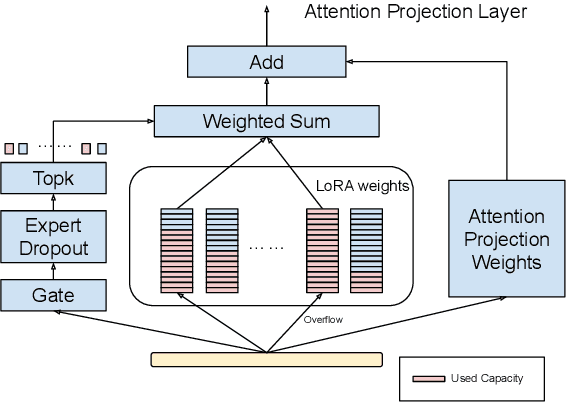SiRA: Sparse Mixture of Low Rank Adaptation
Paper and Code
Nov 15, 2023



Parameter Efficient Tuning has been an prominent approach to adapt the Large Language Model to downstream tasks. Most previous works considers adding the dense trainable parameters, where all parameters are used to adapt certain task. We found this less effective empirically using the example of LoRA that introducing more trainable parameters does not help. Motivated by this we investigate the importance of leveraging "sparse" computation and propose SiRA: sparse mixture of low rank adaption. SiRA leverages the Sparse Mixture of Expert(SMoE) to boost the performance of LoRA. Specifically it enforces the top $k$ experts routing with a capacity limit restricting the maximum number of tokens each expert can process. We propose a novel and simple expert dropout on top of gating network to reduce the over-fitting issue. Through extensive experiments, we verify SiRA performs better than LoRA and other mixture of expert approaches across different single tasks and multitask settings.
 Add to Chrome
Add to Chrome Add to Firefox
Add to Firefox Add to Edge
Add to Edge